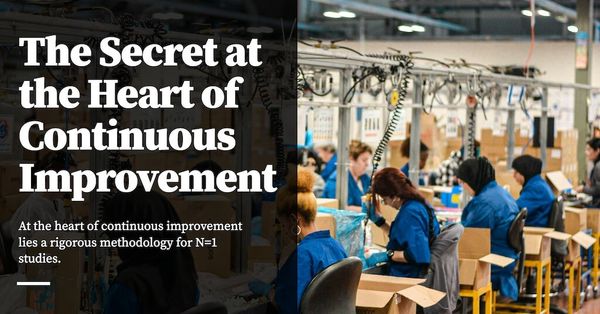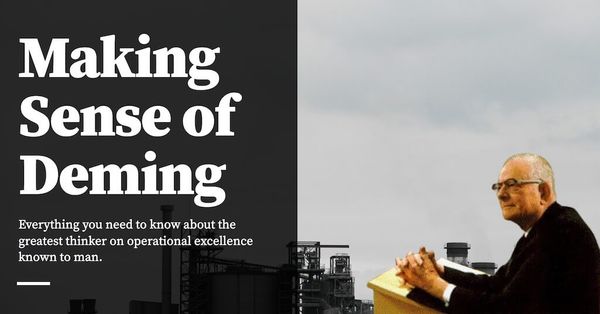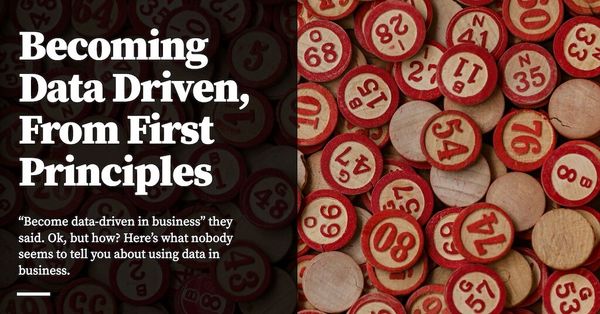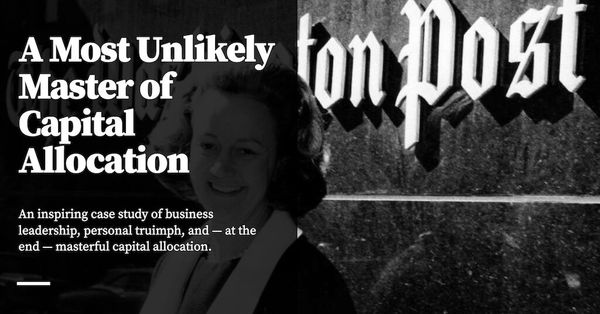This is the second post of The Chinese Businessman Paradox.
The first generation of overseas Chinese businessmen learned by doing.
Two generations ago, finishing primary school was considered rare. The traditional Chinese businessman of my grandfather’s generation learnt business by doing business — and their learning started young.
Take Singapore’s Ng Teng Fong, for example. Ng’s Far East Organisation is one of the preeminent real estate developers in Singapore, responsible for a large number of property developments, the most prominent of which is probably The Fullerton Hotel along Marina Bay. Ng never went to school. He started young.

Ng Teng Fong’s parents migrated to Singapore when he was six, a Henghua family from Putian, a city in the Fujian province of China. When they arrived in Singapore, Ng’s parents started a soy sauce factory and a grocery shop at Weld Road. They gave their eldest son a job at the company, and groomed him to take over the family business. But Ng refused as he came of age. In the 1950s, he left his father disappointed and set out to start a business of his own.
Ng Teng Fong’s first attempt at business was a provision shop, which fared horribly. Ng was said to be so poor during this period that he had to give away one of his eight children. It was only in the next decade, the 60s, that he started Far East Organisation and found success in real estate development. He built this business into the conglomerate we know today, brick by brick, over the subsequent 40 years.
Ng learnt by doing — and he extended this approach to his son. In a 2010 blog post, then-Singapore foreign affairs minister George Yeo wrote:
When his eldest son, Robert, was only 22, Ng Teng Fong sent him to Hong Kong where he learnt quickly to hold his own against the big Hong Kong players and built up Sino Land. I asked Robert whether it was difficult for his father to convince him to go. Robert looked at me a little surprised and replied that it never crossed his mind that he had a choice. I remember Ng Teng Fong telling me that while land in Singapore and Hong Kong was always limited and would go up in value, in bigger countries, including China, that was not always the case. When a project succeeded, more land would be supplied limiting the upside. When I visited Hong Kong in early 1990, the people there were still despondent from June 4th. Robert however was bullish. I knew that also reflected Ng Teng Fong's reading of the situation. True enough, within a year, the Pearl River Delta saw explosive economic growth.
Robert Ng still runs the Ng family interests in Hong Kong. He, too, learnt by doing. Learning via the school of hard knocks seems to be a thing amongst traditional Chinese businessmen.
In Asia, we take the benefits of a formal education for granted. We are told that earning a degree is our way out of poverty. But it’s telling that business performance is helped little by the quality of formal education one receives. The dominance of family-run Chinese conglomerates in South East Asia imply that the best sort of education in business is to be taken under the wing of a superior operator, and taught the ropes the way a master teaches an apprentice.
Tough luck if that operator is your dad.
Over the last couple of years, I’ve looked for but never found a correlation between education and business skill in the Chinese businessmen I’ve dealt with. If anything, the more educated ones seemed hampered by their thoughtfulness. The successful ones, on the other hand, seemed pathologically biased towards action. This bias made me uncomfortable. If the educated man always looks before he leaps, the successful Chinese businessman seemed to me to be overly biased towards leaping.
But I’m beginning to believe I know why.
The Two Approaches to Problem Solving
The answer, I think, lies in education.
Broadly speaking, there are two basic approaches to problem solving: trial and error, and theory and insight. It’s difficult to overstate how much we are driven towards theory and insight by the formal education we receive.
Consider the problem of bridge building. The trial and error approach to bridge building would be to slap together a bunch of things until you find a design that works. Today, this approach is considered horrifying and is never used. We have since worked out the underlying physics of bridges, and have developed sophisticated tools to design them. Structural engineers can tell whether a design would work even before construction begins; an engineer who gets things wrong, in fact, would find himself shamed by society, and punished severely by the professional bodies in his industry.
And so we internalise: “trial and error is a stupid way to build bridges” and extend that. We think: “study hard in school; learn math, physics and engineering, and you will be able to save yourself from error.”
Our education system prioritises learning from theory and insight. This seeps into other parts of our lives. Consider: when you have a decision to make, the bias of your education is to slow things down, to think things through, to look before you leap. It doesn’t even cross your mind that failure might be the smart move. There is a straight line from the lesson about building bridges to your approach to decision making — you don’t want to fail because failure is bad in ‘theory and insight’. So you spend more time thinking than acting.
The good news is that thinking deeply and then acting is optimal for fields where a body of knowledge exists. But in fields where little is known, or where things change too quickly for theory to find handholds, trial and error dominates as the superior problem solving strategy. In these fields, failure is an acceptable cost of learning. In these fields, thoughtfulness takes on a different form.
My current theory is that business is one such field. The optimal strategy for learning in business is trial and error, because business changes too quickly for there to be immutable rules. Traditional Chinese businessmen are thus the product of trial and error. The children who run their parent’s businesses are themselves taught via this principle of learning.
This leads to some pretty interesting implications.
Let Reality Be The Teacher
The first implication is that when you say a person went through “the school of hard knocks”, or that “he was self-educated”, what you shouldn't be thinking is “that’s a lousy education and a terrible school”. For business, at least, it’s the best school you could possibly ask for.
The second implication is that when someone makes a mistake and blows up, you may laugh at them because they’re out of the game. But if someone makes a mistake, takes a hit — as Ng Teng Fong did — but remains in the game, what matters is what they learn from it. We expect people to not make mistakes, because we were educated with theory and insight. But the businessman who takes a hit and learns well is far superior to the businessman who thinks hard about every decision he makes.
(The corollary to this second implication is that you shouldn’t do trials where the errors are catastrophic. Though that is kind of obvious.)
The third implication is that The Lean Startup methodology — with its focus on ‘launching early and failing fast’ — is simply an attempt to repackage trial and error for the educated person’s playbook. It is a hack designed for minds adapted to theory and insight. “It’s ok to fail”, the Lean Startup says, “Here’s a theory to explain why this is the best way to succeed!” This then makes trial and error palatable to the educated person.
But the final implication is the most interesting one to me. The final implication is that it’s possible to be get better at trial and error.
To explore this idea, consider a question that I’ve been interested in for the past 10 years: what separates the Robert Kuoks, the Mochtar Riadys, the Ng Teng Fongs and the Yeoh Tiong Lays from the rest of the traditional Chinese businessmen who have graced both sides of the Malaccan Straits?
The obvious answer — the one that springs to our lips — is luck. But drawing luck as a lesson from their lives wouldn’t be useful to us. We should look for better theories, and prioritise ones that we may test.
Here’s my current theory, one that I intend to test over the next decade. I think that successful Chinese businessmen are better because they are better at trial and error. They use less cycles to learn the right lessons. Perhaps Ng Teng Fong took a decade in his youth to learn business … but a decade is a short time in the grand scheme of things. Conglomerates are built over a lifetime.
I don’t have a lot of positive evidence for my theory. It’s occured to me that the people who are best at learning from trial and error just … appear to ‘get the hang of things’, and move forward from their stumbles.
The only confirmation that I have so far — and in fact, the thing that led me to the ideas in this post — are the business people I’ve met who have performed terribly in their careers. Negative examples are often all we have as clues in the messy reality of business. These particular entrepreneurs stood out in my mind for their inability to learn the ‘right lessons’ when they failed.
I know, personally, an entrepreneur who cannot seem to understand the importance of distribution. He has no ability for sales or marketing, despite his brilliance at recruiting programmers to his cause. And so every business venture he does inevitably fails.
I know of another who treats his staff badly, and believes high turnover to be a fact of life. This has hampered his ability to execute on his plans. And yet he fails to address the underlying reason for his continued failure. To my ex-colleagues and I, watching from the outside, this seemed remarkably bizarre.
I often think of the quote “madness is doing the same thing again and again, and expecting different results.” I have not met a single successful entrepreneur with this quality. But the list grows for the ones who have plateaued.
I used to joke with my ex-colleagues that if these businessmen we knew were so blind to their flaws, what blind spots did we have, that were clear to others watching us, that made us appear bizarre to them? The joke would be that we were just as bad, but we didn’t know it.
My observation that some business people do not learn the ‘right lessons’ from their errors still begs for a better answer. How do you know the ‘right’ lessons to learn? This is easy to tell in the negative case, but not in the positive one (e.g. it's easy to see that someone is bad at it, because each error they've made in the recent past will have the stink of the same cause ... but it's unclear what the best businessmen do to get better at this).
I suspect that optimising for usefulness is one part of it. Adjusting for blind spots is another. But is this all to it? How do you increase the speed with which you learn from your mistakes?
I wish I have good answers for these questions, but I’m afraid we’ve reached the limit of my explorations. In my next post, I’ll talk about one possible pocket of human knowledge I’ve been digging into.
For now, however, I suspect the following truth:
When the cost of failure is low, when the effort of testing is cheap, and when there is much that is unknown, trial and error is usually the optimal strategy to pursue. It’s worked for traditional Chinese businessmen, landing on foreign shores, starting businesses amongst cultures they did not understand. And it works because it can be as thoughtful as the person who does 'thinking and insight'; it works because trial and error never lies. It lets reality become the teacher.
View the next post here: Superstition Doesn't Count.
Originally published , last updated .





